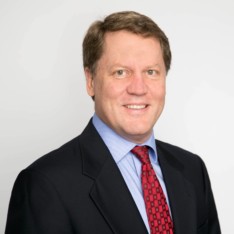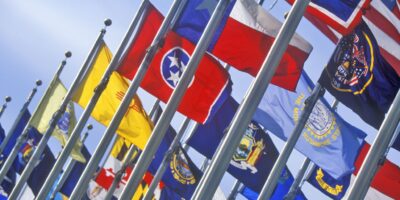Needed: Millions of Individual Experiments

I just received this email from my dentist who said that he is reopening for business on May 20, initially for emergency procedures:
“Good Morning,
I hope this letter finds you well. Our community has been through a lot over the last few months, and all of us are looking forward to resuming our normal habits and routines. While many things have changed, one thing has remained the same: our commitment to your safety.
Infection control has always been a top priority for our practice and you may have seen this during your visits to our office. Our infection control processes are made so that when you receive care, it’s both safe and comfortable. We want to tell you about the infection control procedures we follow in our practice to keep patients and staff safe.
You may see some changes when it’s time for your next appointment. We made these changes to help protect our patients and staff. For example:
- Our office will communicate with you beforehand to ask some screening questions. You’ll be asked those same questions again when you are in the office.
- We have hand sanitizer that we will ask you to use when you enter the office. You will also find some in the reception area and other places in the office for you to use as needed.
- You may see that our waiting room will no longer offer magazines, children’s toys and so forth, since those items are difficult to clean and disinfect.
- We request that you remain masked until treatment begins.
- Appointments will be managed to allow for social distancing between patients. That might mean that you’re offered fewer options for scheduling your appointment.
- We will do our best to allow greater time between patients to reduce waiting times for you, as well as to reduce the number of patients in the reception area at any one time.
Beginning May 20th we will be opening 2 days a week on a very limited basis for emergencies. We look forward to seeing you again and are happy to answer any questions you may have about the steps we take to keep you, and every patient, safe in our practice. To make an appointment, please call or email us.
Thank you for being our patient. We value your trust and loyalty and look forward to welcoming back our patients, neighbors and friends. We miss you!”
Across America and the world, millions of people like my dentist are making countless adjustments to the reality of coronavirus. If they are elderly, like my parents, they may be adhering to stringent guidelines established by the assisted living facility they live in that restricts visitors and establishes careful hygiene standards for outside workers.
Or they may be taking creative ad hoc steps, like this restaurateur seeking to re-open, who installed shower curtains to control air flow between dining tables.
In my own home in New York City, we maintain a disinfecting table at our front door where everyone and everything gets wiped down with disinfectant before entering our home. (And I just had an antibody test: negative!).
Everywhere, each person has their own context in which they make decisions to protect themselves, their loved ones and, in the case of my dentist and the restaurateur, their customers.
If one is younger, the risks from COVID are far less, and one may choose to socialize or party and not even wear a mask. If one is elderly, like my parents, extreme steps are called for. And if one is running a business, prudent steps can be taken to protect the business owner and their customers.
But the key issue here is context. The contexts are individual. Each individual is best suited to make these decisions for himself or herself, based on their own values and circumstances. And each individual alone has the requisite knowledge to make those decisions, given their unique knowledge of “time and place,” to use economist Friedrich Hayek’s phrase.
But there is more to this than context matters. There is the right of individuals to determine their own fate. This is the founding principle of our country enshrined in our Declaration of Independence, our individual right to “life, liberty, and the pursuit of happiness.” The principle of individual rights is that each of us owns our own individual life and no one can tell us how to live it, except where our actions may violate the similar freedom of action of others to pursue their own happiness.
Almost the entire debate over what to do about coronavirus has taken on a collectivist/utilitarian spin. The argument seems to be almost exclusively in terms of aggregates. How many deaths will be caused by coronavirus versus how many deaths will be caused by the lockdown? The implication is that the lockdown is justified if it saves more lives in aggregate than it costs. The converse implication is that the only way the lockdown can be ended is if the aggregate lives harmed by the lockdown exceed the number of lives gained.
This approach dismisses America’s founding principle of individualism. It treats people as sort of a single body or blob where it is okay to cut off one part of the blob to save the rest of the blob. Therefore, it becomes okay to destroy one person’s business or job or quality of life if it helps save the life or well-being of another person.
Such an approach is collectivist and it is contrary to the principle of individualism.
It is also a form of utilitarianism. Economist/philosopher Jeremy Bentham expressed this idea when he said that the goal of morality and, by implication, government policy is to ensure “the greatest good to the greatest number of people.” But is this really so? What if that “greatest good” can only be achieved by harming or even killing members of the minority? The principle of individual rights says that the purpose of government is to protect our individual liberty and ability to pursue our individual happiness. It is not to balance the interests of groups or collectives by pitting one group against another or demanding that one group’s interests be sacrificed to another.
Hayek makes the point that only individuals can know what is in their self-interest. Therefore, the government should not impose “one-size-fits-all” solutions from above, as it is doing now. The result will be worse than what would be achieved by the millions of individual experimenters. This is undoubtedly true. But we must couple Hayek’s insight with those of America’s Founding Fathers, who made the point that only the individual’s welfare is to be considered and protected by government, and that it is wrong to use a collectivist standard.
We must embrace these ideas as we consider our way out of this pandemic. The debate must not be framed as the battle of collectives — of which group will gain or lose more in a battle of all against all. We must figure out how to empower and protect individuals so that they can make their own decisions, like my dentist, like restaurateurs and business owners everywhere, like individuals and families in their own homes.
Each of us knows best how to protect his or her own life, and each of us ought to be free to take those actions as each of us sees fit.
We must embrace individual freedom as the answer to this crisis. End the lockdowns, and end the collectivist approach to solving this crisis.












